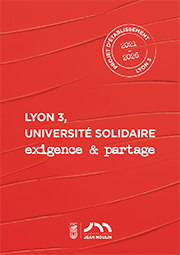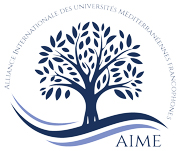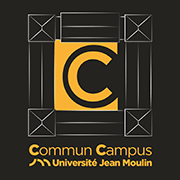AccueilRechercheProgrammes et productions scientifiquesThèsesThèses soutenuesThèses soutenues - 2006-2021Thèses soutenues - 2014
-
Partager cette page
- Recherche,
SULEIMAN Lourdes
Le r?le du droit international dans l'émergence d'un Etat palestinien. Difficultés et limites.
Thèse en Droit international et relations internationales soutenue le 4 juillet 2014.
On a cherché à pallier à cette situation infernale par l’usage de techniques qu’offre le droit international dont l’objectif est de mettre un terme à un conflit. Il existe une technique qui para?t être la plus appropriée pour le conflit israélo-palestinien, il s’agit de la fameuse technique de la négociation. Cependant le processus de paix ayant débuté en 1990 se trouve aujourd’hui presque oublié.
Malgré tout cela, la création d’un Etat palestinien se trouve être la base de la solution du conflit israélo-palestinien. Cette présente étude cherche à démontrer, sur la base de la définition de l’Etat selon le droit international, que la Palestine dispose d’une part, d’éléments avérés, mais imparfaits, permettant à cette dernière de constituer un Etat selon le droit international, et d’autre part que cette dernière ne peut accéder au rang d’Etat dans la mesure où certains éléments nécessaires à la constitution d’un ?tat demeurent contestables. Ce qui manque à la Palestine pour se constituer en Etat c’est l’effectivité.
The international community and the international law are facing a great challenge: find the solution to end the Israeli-Palestinian conflict. The study of the Israeli-Palestinian conflict in light of international law shows many difficulties related to the emergence of a Palestinian state. Indeed, this conflict is a source of violation of international law specifically a violation of human rights that continues to strike in this area. Violations against international law go back to the time of the British mandate and are finally characterized by the impunity towards the entities that have committed them. Therefore, this allows us to highlight the weaknesses of international law, more specifically those of the United Nations that is confronted with the constant breach of its principles and decisions. We have tried to overcome this infernal situation by using the techniques offered by the international law that aims to put an end to a conflict. There is a technique that seems to be the most appropriate for the Israeli-Palestinian conflict known as the negotiation. However, the peace process that began in 1990 is now almost forgotten.
Despite all this, the creation of a Palestinian state is the base to the solution of the Israeli-Palestinian conflict. This present study aims to demonstrate, based on the definition of the State under international law, that Palestine has, on one hand, confirmed elements/components that are imperfect, allowing the latter to constitute a State under international law, and on the other, that it can’t achieve statehood to the extent that certain elements necessary for statehood remain questionable. What Palestine is missing is effectiveness.
Mots-Clés : Palestine, Isra?l, Accord d’Oslo, Autorité Palestinienne, OLP, Conventions de Genève, droit de l’homme, Etat, guerre, Organisation des Nations Unies, Jérusalem, colonisation, occupation, recours à la force, violation, droit international, négociation, processus de paix, population, réfugiés, gouvernement, territoire, reconnaissance, mur de séparation.
Keywords : Keywords: Palestine, Israel, the Oslo Agreements, the Palestinian Authority, PLO, Geneva Conventions, human rights, State, war, United Nations, Jerusalem, settlements, occupation, use of force, international law violations, negotiation, peace process, population, refugees, government, territory, recognition, separation wall.
Directeur de thèse : Stéphane DOUMBE-BILLE
Membres du jury :
Habib SLIM, Professeur émérite, faculté de Droit et Sciences politiques de Tunis
Rahim KHERAD, Professeur des universités, Université d’Angers
Madjid BENCHICKH, Professeur des universités émérite, Université de Cergy Pontoise
Kiara NERI, Ma?tre de conférences, Université Jean Moulin Lyon 3
Stéphane DOUMBE-BILLE, Professeur des universités, Université Jean Moulin Lyon 3
Président du jury : Madjid BENCHICKH
Mention : Très honorable
Equipe d'accueil : Droit international et relations internationales







